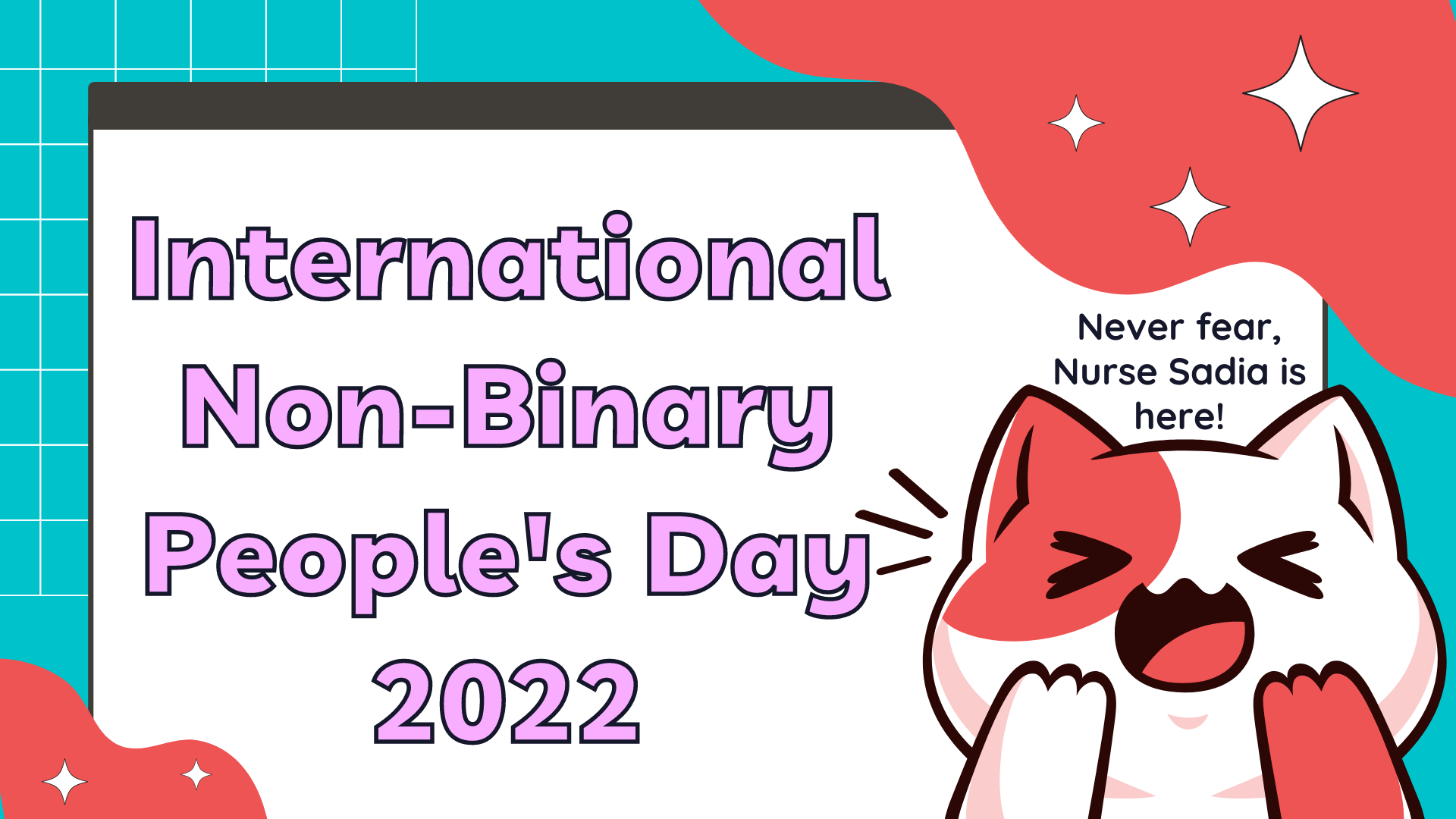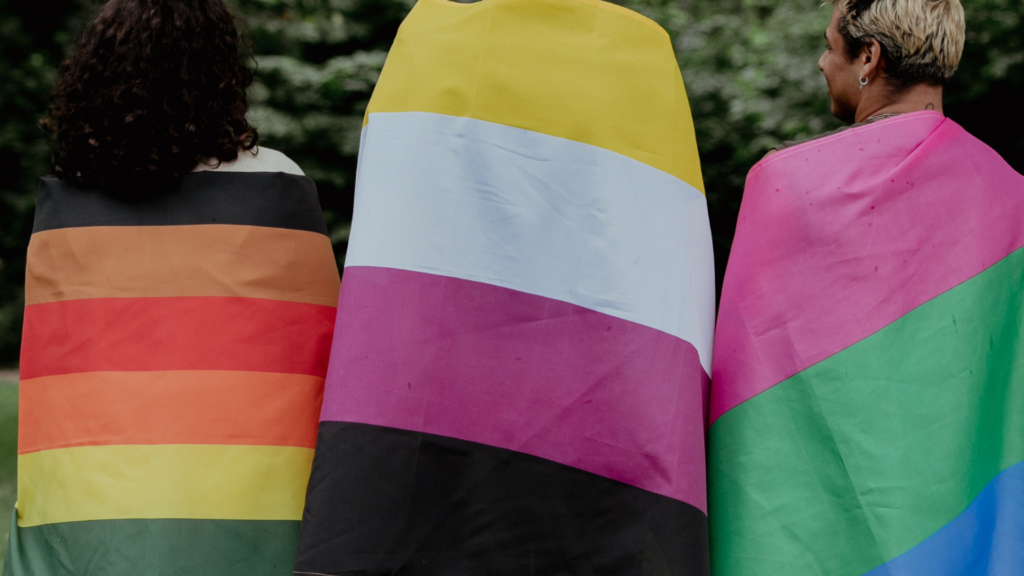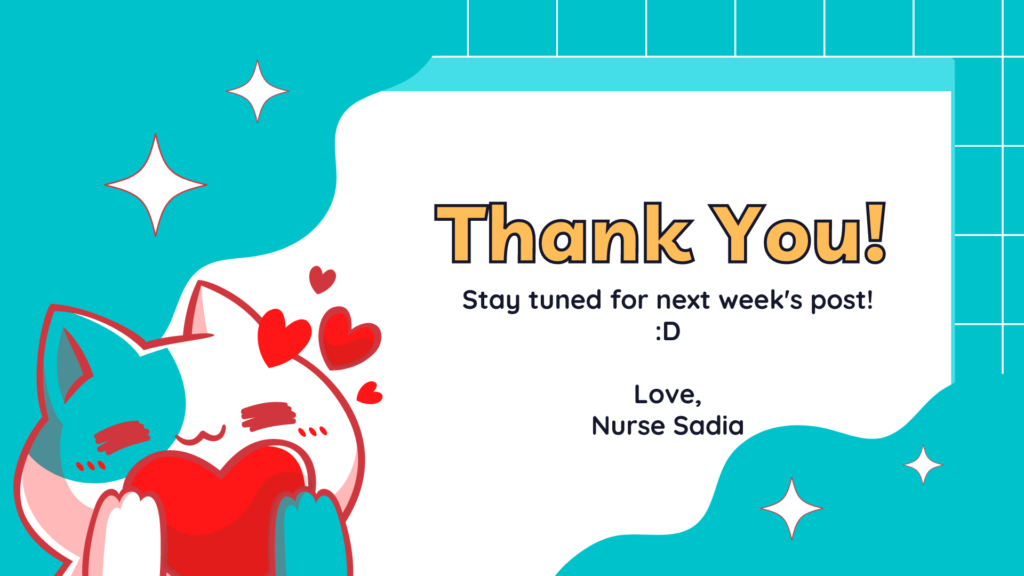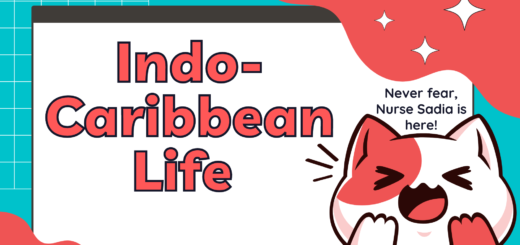Non-Binary People’s Day 2022 Feels Wild

Happy Wednesday! Tomorrow is International Non-Binary People’s Day 2022 – woohoo! This week, I’ll be talking about non-binary people, the history of International Non-Binary People’s Day, and more. Whether you are non-binary or just want to learn more about this group of people, this post is for you!
Welcome to my blog! I’m Sadia, a women’s health nurse practitioner, women’s health content writer, and social commentator. I do many things, but mostly, I write and speak my mind. All views my own unless stated otherwise. Grab something to drink and scroll away with me. It’ll be good for both of us, promise.

First, Who Are Non-Binary People?
Unless you’ve been living under a rock for the past decade, you’ve noticed some terms emerge in society. Transgender, non-binary, cisgender, genderqueer, and other terms more are much more popular in today’s vernacular than years prior. Mass globalization and use of the Internet allowed many people to connect with each other and explore their identities online. Plus, these terms existed for many years before the Internet. But, we all know that the Internet just speeds things up a bit.
Non-binary simply means someone who does not identify within the gender binary for that society’s social norms. In most Western and European cultures, gender is often split into male and female. Or woman and man. In other cultures, there are genders outside of male and female.
Also, non-binary can mean many things for many people, as the term non-binary can be all encompassing.
Now, this is where things can get a little complicated.

Why Does Non-Binary People’s Day Exist?
Non-Binary People’s Day occurs every July 14. It exists because of the erasure, stigma, and social harm towards people who do not conform to society’s gender roles. Social norms often decide how we live, have sex, socialize, dress, eat, and more. When a non-binary person exists, their existence goes against social norms.
Social norms are what people in a given society are accustomed to. In many parts of Global South, such as Asia, Latin America, and Africa, there are histories of non-binary communities of people. Often times in American society, non-binary is seen as a trend for white women with a pixie haircut and wearing “male” clothing.
Ask yourself. Who taught you about gender roles? About what clothes to wear? Does the thought of someone not dressing or acting in a particular way make you feel uncomfortable? Who told you that makeup was unacceptable for men, but OK for women?
Did you know that society’s views on gender is always changing and that most cultures have experienced significant changes in gender views and roles over the past century?
Did you also know that colonialism, imperialism, white supremacy, and genocide have drastically changed the ways many Global South cultures express gender norms?
Why Does This Matter?
Non-binary people are not new. Stigma against non-binary people is not new. What’s new is more social acceptance and discussion around non-binary people. And, it’s FAR from perfect. Within the past few years, hundreds of legislation in America from many different states revolve around anti-trans legislation.
From gender neutral bathrooms to sports competitions and more, non-binary people face several challenges presently. Sure, there is more discussion among people for pronouns, safer spaces, and the like.
Structurally, there are many places where being out as a non-binary person can mean life or death. Often times, non-binary youth experience bullying and mental health concerns at higher rates compared to other youth. Non-binary people can be denied employment, housing, and health care in many parts of America (and the world).
In addition, non-binary people also experience discrimination when accessing health care services and are often excluded in research studies.
Even though the International Non-Binary Day exists, there is so much more work needed to achieve equity and understanding for non-binary people.
P.S. Are you still reading? If you are able to afford to do so, consider compensating me for my time and labor with a one-time amount via PayPal (https://paypal.me/nursesadia) or Ko-fi (https://ko-fi.com/nursesadia). Thank you!
What Can I Do?
Educate yourself on gender.
Financially support organizations and people doing the work for non-binary people’s inclusion and awareness.
Think about your upbringing and thoughts on gender, society, and more.
If you see anti-trans or oppressive legislation, fight against it.
Working in health care means seeing people from all walks of life. While we can bring our biases and judgments into health care, it’s time for that to change to be inclusive for everyone.
Yours Truly,
Nurse Sadia
References
https://www.stonewall.org.uk/about-us/news/10-ways-step-ally-non-binary-people
https://www.hrw.org/news/2022/02/24/guanajuato-mexico-recognizes-non-binary-persons-identity
https://medium.com/@janelane_62637/the-splendor-of-gender-non-conformity-in-africa-f894ff5706e1
https://www.nbcnews.com/feature/nbc-out/lgbtq-rights-fight-reignited-4-years-after-n-c-s-n1250390

DISCLAIMER: Nurse Sadia is a licensed and board-certified women’s health nurse practitioner and registered nurse. All information on this page and on www.digitalhealthcommunicator.com is for educational and informative purposes only. It is not meant to be used for self-diagnosing or self-treatment of any health-related conditions. While the information presented has used evidence-based research and guidelines for accuracy, Nurse Sadia cannot guarantee any inaccuracies as healthcare is rapidly evolving.
This information should not be used to substitute professional medical advice. Nurse Sadia is not responsible or liable for any damages, loss, injury, or any negative outcomes suffered as a result of personal reliance on the information contained on this website. Nurse Sadia also makes no guaranteed positive outcomes. Information is also subject to change as needed without notice. Please consult with your healthcare provider before making any healthcare decisions and ask about guidance for specific health conditions. Please do not disregard the advice of your healthcare provider or delay seeking care for health care conditions.




You must be logged in to post a comment.